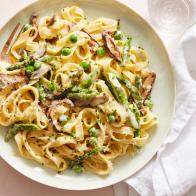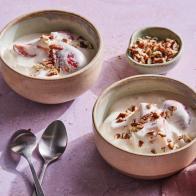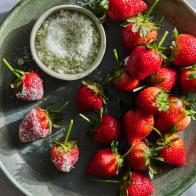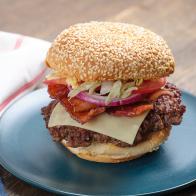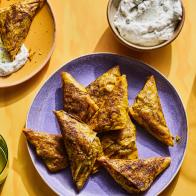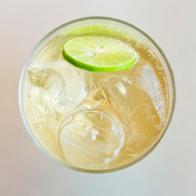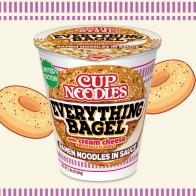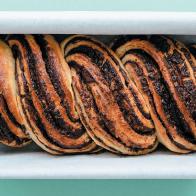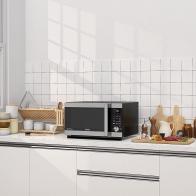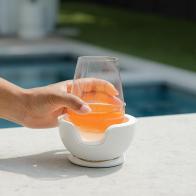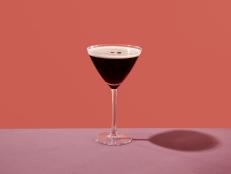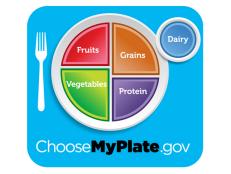Can You Eat Your Way to a Better Immune System?
Here's the science behind immune-boosting foods.
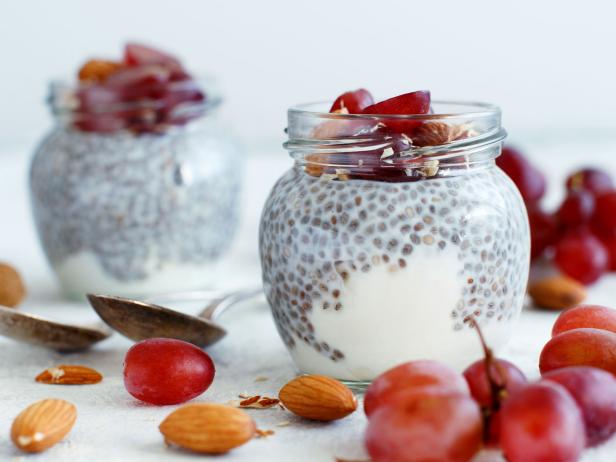
Karisssa/Getty Images
People have always worried about their immune system, but many even more during the pandemic. Folks have been looking at supplements in order to boost the immune system for years. However, it’s sometimes easy to forget that the food you eat has an effect on your immune system, too. Keeping your immune system strong and resilient is truly your first-line of defense for safeguarding your health. After writing my latest cookbook The Family Immunity Cookbook: 101 Easy Recipes to Boost Health, I've a better understanding of how to eat for your immunity. Here's how.
How the Immune System Works
A healthy immune system is vital to good health. The immune system helps fight off any foreign invaders to the body. If our immune system is healthy, it’s easier to fight bacteria, viruses or and other pathogens that can make you sick. A healthy diet helps to keep your immune system in optimal shape. If you have a subpar diet, improving what you eat can also help improve your immunity. During times of high stress, it’s easy to forget how much we benefit from eating well.
Foods That Help Keep Your Immune System Healthy
Your body get different nutrients from different foods, so when you don’t eat a balanced and varied diet which includes fruits, vegetables, proteins, starches (including whole grains), milk and dairy products, and healthy fats, you can miss out on some (or even many) of the things that keep our immune systems healthy and working properly. Below are seven foods that can help your immune system. In my latest cookbook, The Family Immunity Cookbook, I identify 25 top foods to help keep your immune system in tip top shape.
Lentils
This legume is a good plant-based source of zinc, with 1 cup of cooked lentils providing 17% of the recommended daily dose of the mineral. This legume is also an excellent source of iron, providing 37% of the recommended daily amount, and a good source of vitamin B6, providing 18% of the recommended daily amount. Zinc, iron and vitamin B6 all help create infection-fighting white blood cells.
Yogurt
Whether you choose traditional or Greek yogurt, this fermented dairy product contains live, active cultures. These probiotics act as “good” bacteria in your digestive system, which means they provide health benefits and help protect the digestive tract. Research has shown that some strains of probiotics can help your immune system work efficiently and promote a healthy digestive system.
Almonds
One ounce, or 23 almonds, of unsalted dry roasted almonds provides 169 calories, 6 grams of plant protein, 3 grams of fiber, “good” unsaturated fats, magnesium and vitamin E. The antioxidant vitamin E is fat-soluble and found in high concentrations in immune cells compared to other cells in the blood. It’s one of the most effective nutrients that helps keep your immune system working properly.
Grapes
One of the most critical components to immune health is proper hydration. Grapes are 82% water and can help keep you hydrated. They contain over 1,600 plant compounds that may help fight and prevent disease. Some of the compounds in grapes include antioxidants and polyphenols, which protect the health and function of the body’s cells. Grapes also contain resveratrol, a plant-based compound which helps regulate immunity and helps fight inflammation. Resveratrol may also play a beneficial role in the prevention and progression of chronic diseases related to inflammation including diabetes, obesity, cardiovascular disease and cancers.
Red Bell Peppers
One half cup of sweet red bell pepper provides over 100% of the daily recommended amount of vitamin C. In addition to its function as an antioxidant, several cells of the immune system need vitamin C to perform their task. In addition, research shows that vitamin C may slightly reduce the duration of an illness in a healthy person. Red bell peppers provide the antioxidant vitamins A and E, which also help fight free radicals that can damage your body’s cells.
Oats
Beta-glucan is a type of fiber found in oats that helps boost white blood cells, which that help fight infection. The minerals selenium and zinc also help fight off infection and keep your immune system healthy. In addition, beta-glucan can help trigger a series of chemical activities in the body that help the immune system function more efficiently. Oats are also brimming with the amino acid arginine that helps heal injuries, regulate blood flow and helps keep the immune system healthy. Selenium is a mineral that also helps regulate the immune response and acts as an antioxidant protecting your cells from oxidative damage and infection. Oats also provide a natural plant compound called avenanthramides, which has antioxidant properties and can potentially minimize inflammatory responses and stimulate the immune system.
Eggs
One large egg provides 13 vitamins and minerals and high-quality protein, all for 70 calories. The egg white certainly contains protein, but that golden yolk also provides an equal amount of protein, plus a boatload of these important nutrients. Vitamin D, found in the yolk, is critical for your immune system to function properly and for bone health. Eggs are one of the only foods that naturally contain this important vitamin. Vitamin E is also found in the yolk and is involved in immune function.
Below is a recipe from The Family Immunity Cookbook using two of the immunity-boosting foods listed above: oats and grapes.
Grape Oatmeal Cups
Instead of a bowl of oatmeal, whip up your oats in handheld baked cups. This easy breakfast is quick to serve to kids with a glass of milk before school, and great to grab and go during a busy work week.
Serves: 6
Serving size: 2 oatmeal cups
Ingredients
- Nonstick cooking spray
- 3 cups (750 mL) gluten-free large-flake (old-fashioned) rolled oats
- 1/4 cup (60 mL) unsalted sunflower seeds
- 1 tsp (5 mL) baking powder
- 1 tsp (5 mL) ground cinnamon
- 11/2 tsp (2 mL) salt
- 11/2 cups (375 mL) nonfat milk
- 2 large eggs, beaten
- 1/4 cup (60 mL) pure maple syrup
- 2 tbsp (30 mL) unsalted butter, melted
- 1 tsp (5 mL) vanilla extract
- 1 1/2 cups (375 mL) red or green seedless grapes, quartered
Instructions
- Line a 12-cup muffin pan with paper cups and coat with nonstick cooking spray
Preheat the oven to 350 F (180 C).
In a medium bowl, mix together the oats, sunflower seeds, baking powder, cinnamon and salt. - In a large bowl, whisk together the milk, eggs, maple syrup, butter and vanilla extract.
- Mix the dry ingredients into the wet ingredients until well combined. Fold in 1 cup (250 mL) of the grapes until evenly distributed.
- Using a 1/4 cup (60 mL), scoop the batter into each of the twelve muffin cups. Tap the muffin pan a few times on the countertop to release any air bubbles. Divide the remaining 1/2 cup (125 mL) grapes among the twelve cups.
- Bake until the edges of the oat cups are slightly browned and a tester inserted into the center of one or two cups comes out clean, 45 to 50 minutes.
- Remove the muffin pan from the oven and let cool for 15 minutes before transferring the oat cups to a wire rack to cool completely. Store at room temperature for up to 5 days.
Recipe from The Family Immunity Cookbook by Toby Amidor. Published by Robert Rose Books. Photo courtesy of Ashley Lima. All Rights Reserved.
Toby Amidor, MS, RD, CDN, is a registered dietitian and consultant who specializes in food safety and culinary nutrition. She is the author of The Greek Yogurt Kitchen: More Than 130 Delicious, Healthy Recipes for Every Meal of the Day.
*This article was written and/or reviewed by an independent registered dietitian nutritionist.
Related Links:
